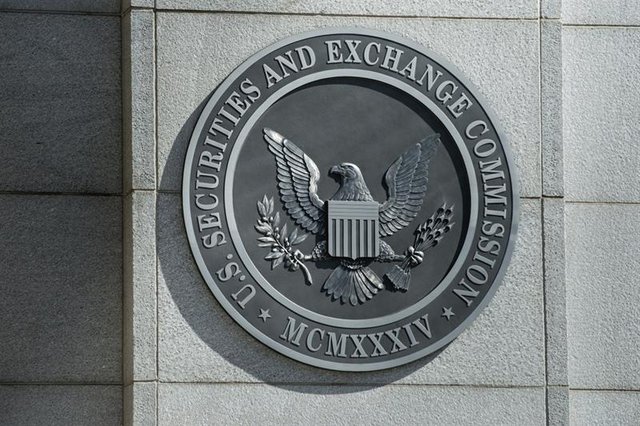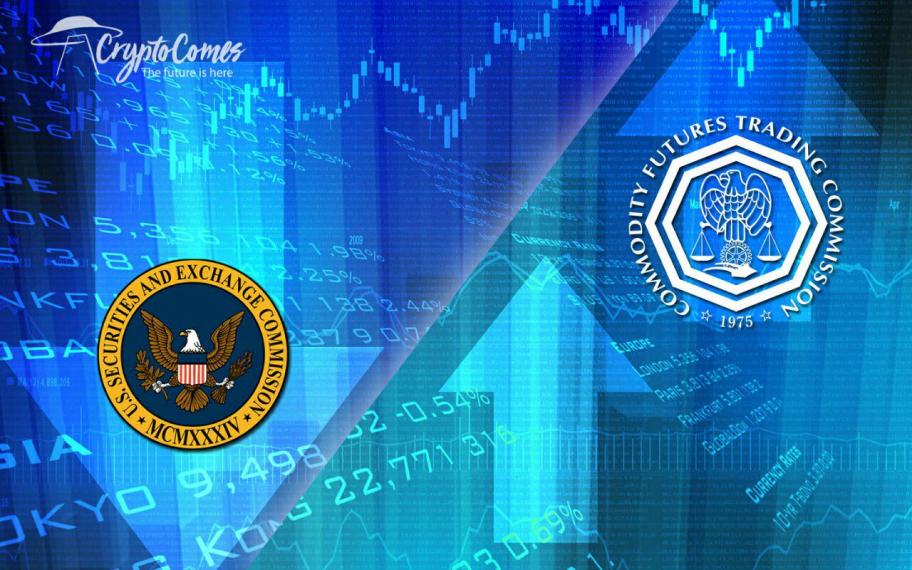Is The SEC Against Cryptocurrency?

As the cryptocurrency market continues to grow, so does the attention it is garnering from regulatory agencies. Recently the Securities and Exchange Commission (SEC) and other regulatory agencies have weighed in with their thoughts.
Many in the crypto world have taken recent rulings and statements from the SEC and its kin as being anti crypto. While that's definitely a hot debate now, I'm not certain that the SEC's intention is to cripple crypto. Let's take a closer look at both sides of the coin (pun intended). Here is an excerpt from their statement on July 25, 2017 that has rattled the industry:
On July 25, 2017, the SEC issued a Report of Investigation under Section 21(a) of the Securities Exchange Act of 1934 describing an SEC investigation of The DAO, a virtual organization, and its use of distributed ledger or blockchain technology to facilitate the offer and sale of DAO Tokens to raise capital. The Commission applied existing U.S. federal securities laws to this new paradigm, determining that DAO Tokens were securities. The Commission stressed that those who offer and sell securities in the U.S. are required to comply with federal securities laws, regardless of whether those securities are purchased with virtual currencies or distributed with blockchain technology.
The SEC went on to say:
The DAO is one example of a Decentralized
Autonomous Organization, which is a term used to describe a “virtual” organization embodied in
computer code and executed on a distributed ledger or blockchain. The DAO was created by
Slock.it and Slock.it’s co-founders, with the objective of operating as a for-profit entity that
would create and hold a corpus of assets through the sale of DAO Tokens to investors, which
assets would then be used to fund “projects.”
Singapore's MAS holds the same stance:
1 August 2017... The Monetary Authority of Singapore (MAS) clarified today that the offer or issue of digital tokens in Singapore will be regulated by MAS if the digital tokens constitute products regulated under the Securities and Futures Act (Cap. 289) (SFA).
What they are referring to is their stance on Slock.it holding what is called a "crowdsale" or "ICO". An ICO (Initial Coin Offering) is similar to the traditional investment world's IPO (Initial Public Offering). Traditionally silicon valley fintech companies would raise money from venture capitalists and typically go through multiple rounds of funding that could take years to complete. This process can be tedious and even result in a startup company with a great idea that never comes to fruition and eventually runs out of money.
The ICO route is much quicker and can have nearly immediate results. The typical ICO can be put together by a small team of developers and be marketed in as little as a couple of months. Then once the token sale is held it typically lasts about a month or less. Investors receive "tokens" in exchange for their Bitcoin or Ethereum investment in the startup company. These tokens are essentially a new cryptocurrency that can be used for various functions for that company or can be bought and sold on an exchange. This is similar to someone buying an IPO such as Facebook or Twitter and then selling it once it is released on the open market.
The SEC uses what is called the "Howey test" to determine if a transaction is indeed a security.
Under the Howey Test, a transaction is an investment contract if:
It is an investment of money
There is an expectation of profits from the investment
The investment of money is in a common enterprise
Any profit comes from the efforts of a promoter or third party
I completely agree with the SEC that these are securities even though many companies currently attempt to market themselves as not being one. A review of their online chat rooms on sites like Telegram, Slack or Bitcointalk.org can be both humorous and frustrating to read. An ICO that I invested in recently was trying to cleverly dance around potential investors securities questions. The company's ambiguous answers were off-putting to one potential investor. Having years of experience trading in stocks and bonds I can relate to his concerns. Another company put out a press release in capital letters saying "TOKENS ARE NOT SECURITIES. TOKENS ARE NOT FOR SPECULATIVE INVESTMENT."
I find this to be absurd that companies are taking this stance. This is sadly one of the reasons why traditional stock market investors are hesitant when it comes to investing in ICOs.
To place the blame on an ICO company is shortsighted though. It's statements from the SEC, China, Russia and other countries/agencies that has ICO companies over a barrel so to speak. If you're holding an ICO you want to stay as far off the radar as possible. To the traditional investor that sounds shady and is like a neon sign screaming "danger, scam ahead." Clearly there are bad players in crypto, but the same can be said for any industry. A recent crypto scapegoat is Protostarr.io. The SEC forced them to shut down and refund every investor.
If potential investors are completing due diligence on whether or not they want to place a sizable bet on a startup, then why don't these ICO companies provide straightforward information and answers? Well, it isn't that simple. The same question could be asked of the SEC. It's the classic chicken and the egg argument.
Remember back in college when you tried to get that 1st credit card? What do banks typically say? "Sorry, but you need to have established credit in order to be approved for our credit card. Perhaps you can ask your parent or guardian to have you listed as an authorized user."
What happens when no one is willing to add you as an authorized user? Such is the case for every company contemplating raising capital via an ICO right now. This is especially the case if you're trying to launch a crypto investment fund.
Are the regulators' concerns legitimate about ICOs being vulnerable to money laundering, terrorist financing and fraud legitimate? Without a doubt. Are there some solid companies out there trying to provide a life changing product or service at a much lower cost by leveraging decentralized Blockchain technology? Absolutely.
If you've seen the movie "The Social Network" which is about the story of Facebook you may recall the name Winklevoss. The famous twins recently applied to the SEC to provide the world with a completely legitimate and regulated exchange traded fund (ETF) dealing in Bitcoin. The only problem is that the SEC denied their request to be officially listed.
Unfortunately they weren't the only ones either.
So far any crypto investment fund that has tried to take the proper steps to ensure that their ICO is done with protecting investors' interests in mind has been denied by the SEC.
So how do we solve for that? How do we make sure there is a healthy balance between regulation and free movement of ideas and capital? Unfortunately I don't believe any of these agencies have the solution to that. I am all for the SEC protecting the unsuspecting grandmother in Kansas from a scam, but you also need to draw the line somewhere.
If you are adventurous enough to invest in crypto then to what extent do you really need Big Brother to tell you that such investments are risky?
In my opinion the investments become even riskier and more speculative the more that agencies make statements that confuse or scare off would be investors. Take China's recent "ban" on ICOs. The Chinese government issued an immediate order for individuals and companies to cease participation in any ICO. This is significant as there have already been 65 ICOs in China in 2017 alone.
Every time a government makes a perceived or real anti crypto decree we have seen the market pull back accordingly. After the Chinese ban, we saw fallout ranging from ICO conferences being canceled to investors fleeing from altcoins. This has caused the total crypto market cap to fall from its recent high of nearly $200 billion down to around $146 billion at the time of this writing.
However, at learncryptoinvesting.com we are still full speed ahead and believe this to be a good time to buy into the selloff. Many times news like this causes an overreaction in the markets. No sooner than China's ban did we see a revised statement from them saying that it is only temporary and that the government would be issuing licenses once they have a framework of policies and procedures in place. This is great news, especially coming from a country that has a history of stifling growth.
The so called "Bitlicense" (a common term for a business license of virtual currencies issued by New York State Department of Financial Services) could very well be the next phase in the crypto space as we see it continue to develop over time. To date only Circle, Ripple and Coinbase have received Bitlicenses.
I foresee there still being a lot of back and forth that will trigger both growth explosion and mass selloffs. The thing to keep in mind is that the underlying technology is here to stay as evidenced by the now more than 1,100 cryptocurrencies currently in circulation.
In my opinion the regulatory agencies can clearly see that there are benefits in not only allowing but also supporting such worldwide economic growth opportunity.
The fact remains though that there must be rules in place that help weed out the corrupt companies. Similar measures that are used in the traditional securities markets are exactly what crypto needs.
While this might anger crypto purists it is the cost of doing business and the only hope of it going mainstream. I'm sure that there are plenty of people out there that would argue against it being a currency for the masses, but I do not fall into that camp. The security and ease of doing business in a world that is engaged on the Blockchain provides benefits beyond whatever regulation that needs to be established.
The SEC and its counterparts seem to want to find that happy medium. How could I say that? Here's a quote last week from Kathleen Moriarty, a partner at law firm Arnold and Porter who helped develop the first U.S. ETF.
“I didn’t see an outright, ‘bitcoin, we hate it, we won’t do it. It was more, ‘it’s bitcoin, it’s still a little funky, let’s wait.'” These comments were made at an ETF event in Washington DC hosted by the SEC and New York University.
After talking to a Wall Street trader myself who echoed those sentiments that's currently where I stand as well.
Regulation will be a good thing and that doesn't mean that the SEC is against crypto. For proof of that all one would have to do is look at the more than 1,500 ETFs available for trading today.
Great post, thank you
The US SEC has proven in the past that it has been "captured" by various very large corporations that get away with breaking rules, but smaller companies and individuals are targeted as extreme examples of law enforcement. The Madoff Ponzi scheme is one obvious case.
So to say "let the SEC decide" is asking the fox which species of chicken it prefers to be in the henhouse. Crypto is designed to take away the centralization that regulation can cover.
SEC approves crypto today:

https://goo.gl/bwm3XC